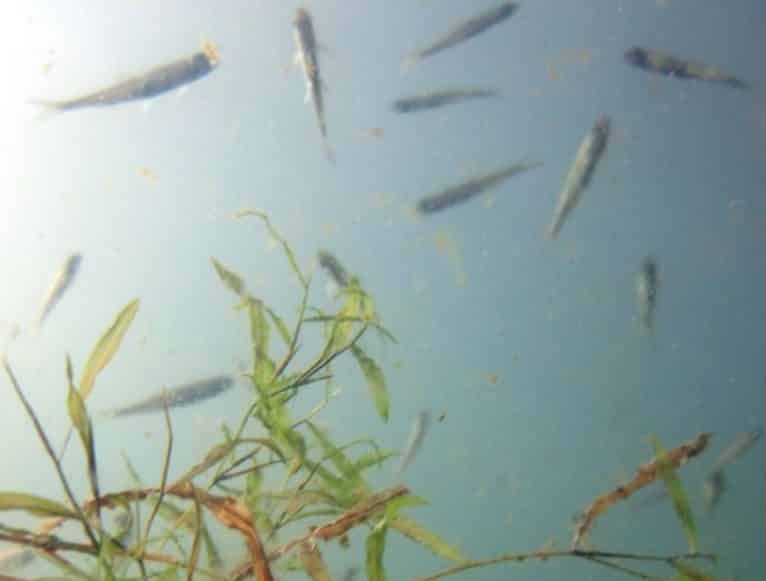
Climate Change Is Draining the World’s Lakes of Oxygen
by Alex Fox/Smithsonianmag.com
Oxygen levels in the world’s lakes are declining because of climate change, according to new research published last week in the journal Nature. Global heating is increasing water temperatures, which reduces the amount of oxygen water can hold. Less oxygen may cause problems for fish and other freshwater wildlife, reports Damian Carrington for the Guardian.
The study analyzed changes in water temperature, clarity and oxygen content for 393 lakes located in temperate climates in North America, South America, Asia and Europe over time. For some lakes, the data stretched all the way back to 1941, but the majority of the records began in the 1980s, reports Kirsti Marohn for Minnesota Public Radio (MPR).
Since the 1980s, the average oxygen content of these lakes declined 5.5 percent near the surface and fell by 18.6 percent in deep waters, according to the study.
“All complex life depends on oxygen. It’s the support system for aquatic food webs. And when you start losing oxygen, you have the potential to lose species,” says Kevin Rose, a freshwater ecologist at Rensselaer Polytechnic Institute and the study’s senior author, in a statement. Read More:

Carol graduated from Riverside White Cross School of Nursing in Columbus, Ohio and received her diploma as a registered nurse. She attended Bowling Green State University where she received a Bachelor of Arts Degree in History and Literature. She attended the University of Toledo, College of Nursing, and received a Master’s of Nursing Science Degree as an Educator.
She has traveled extensively, is a photographer, and writes on medical issues. Carol has three children RJ, Katherine, and Stephen – one daughter-in-law; Katie – two granddaughters; Isabella Marianna and Zoe Olivia – and one grandson, Alexander Paul. She also shares her life with her husband Gordon Duff, many cats, and two rescues.
ATTENTION READERS
We See The World From All Sides and Want YOU To Be Fully InformedIn fact, intentional disinformation is a disgraceful scourge in media today. So to assuage any possible errant incorrect information posted herein, we strongly encourage you to seek corroboration from other non-VT sources before forming an educated opinion.
About VT - Policies & Disclosures - Comment Policy




https://archive.org/details/Report101MaxAWhiteHatInsiderOnELFSignalsInSouthAfricaNeuralInfluenceTech
An extremely interesting interview (Web Link Above) about how the Cabal/Eschatologist (MJ12/*SIG) are deliberately destroying the planets biosphere (e.g. ‘The World’s Lakes’) & other esoteric topics.
NOTE: Gordy will explain who the *Senior Inter-agency Group are!
How did the researcher adjust for the increases of nitrogen due to lakeside septic emissions?
What criteria did he use to pick the lakes?
Was he cognizant of the fact that the opposite perspective would kill his grant application?
Our science is now Bernaysian “Public Relations “, Carol.
Comments are closed.